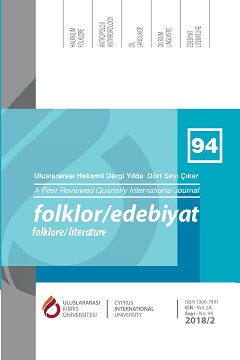Kalıtsalcılık-Çevrecilik tartışması bağlamında Lenneberg’ in dil kuramı ve Kritik Dönem Varsayımı
Lenneberg’s Theory of Language and Critical Period Hypothesis within the Context of Nature-Nurture Debate
Author(s): Özay ÖnalSubject(s): Epistemology, Social Philosophy, Cognitive linguistics, Philosophy of Mind, Philosophy of Language
Published by: Uluslararası Kıbrıs Üniversitesi
Keywords: Linguistics; cognition; first language; second language; critical period; isolated children;
Summary/Abstract: Nature-Nurture debate relates to whether the genetics or the environment is dominant in humankind’s cognitive development. While the nativists claim that the inherited features are important in cognitive development, the environmentalists claim that development is through social and physical experience. In his book, Biological Foundations of Language, Lenneberg, as a nativist, theorizes on what evolutionary features give rise to the language skill in human physiology, cognition-language relationship, the nature of language and the biological background of first language acquisition. An integral part of the theory is Critical Period Hypothesis in which Lenneberg claims that the language acquisition is only possible until the onset of puberty. After this age, brain plasticity decreases and brain lateralization is completed. Following Lenneberg’s theory, new theories of cognitive and language development have been put forward and new findings have been reached. in the course of time, some remarks Lenneberg made have been found noteworthy even by the circles with opposing views. Thus, Lenneberg’s theory can certainly be thought to have contributed to later cognition and linguistic research.
Journal: Folklor/Edebiyat
- Issue Year: 24/2018
- Issue No: 94
- Page Range: 237-254
- Page Count: 18
- Language: Turkish

